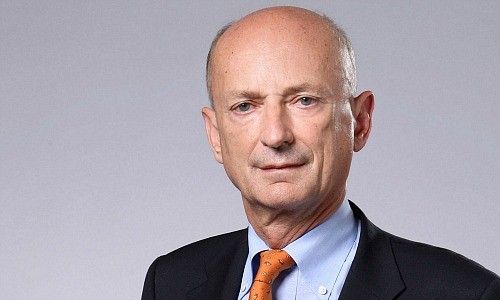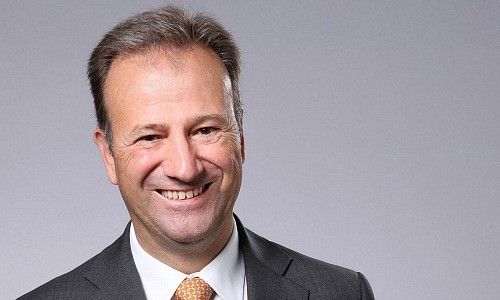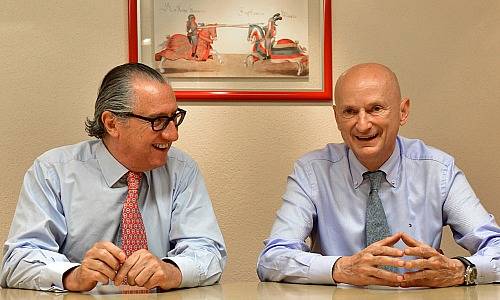How can wealth be preserved for generations to come? Representatives of the international, Liechtenstein-based trust company Industrie- und Finanzkontor in Vaduz have delved into this question and put their thoughts to paper.
Big Data – that nebulous number-cruncher in the virtual heavens – today gobbles up gargantuan amounts of data, ruminates on the stuff, and then egests titbits of pre-digested information that many people regard as the «gold of the future». That of course will evoke a certain kind of «gold-digger mentality» that poses a threat to one’s private sphere and personal wealth writes Prince Michael von und zu Liechtenstein in his essay entitled «Wealth Protection in the Third Millennium?» – the first article of this series.

The financial industry is at the dawn of a new era in which artificial intelligence and human diligence will be at odds with each other, which in turn necessitates that shielding client- and asset-related data against encroachment be accorded even greater paramountcy. Thus in the context of Wealth Preservation, wealth protection means that one should be in a position to identify early on and at all levels those risks that go hand-in-glove with technological progress.
*
In today’s unstable world, the goal of Wealth Preservation is to safeguard a personal or family fortune for posterity, states Count Francis von Seilern-Aspang in his contribution entitled «Are we living in a world of confused values?» But to achieve this goal, one needs to address the question of values – because values serve as important guideposts in (financial) decision-making.

«The financial industry in particular could benefit greatly from a return to traditional values. It would lay the cornerstone for new relationships founded on trust,» asserts Count Francis von Seilern-Aspang. After all, sustainable success is not based on short-term numbers or creative solutions; rather, it comes from a distinct inner bearing that has been shaped by genuine values.
*
In a world that is becoming relentlessly more interconnected, expertise and professionalism are of greater necessity than ever before. For that reason, precisely those individuals who are actively involved in wealth preservation and management should have a vital interest in deciphering and understanding the geopolitical circumstances and events as they unfold, writes Princess Therese von und Liechtenstein in her essay «Geopolitics in Wealth Management».

She continues: «Because just like in a crime investigation, the murder per se is a given – of greater interest to the detective is how it happened in the first place. This is where geopolitics comes in. It has to do with the events happening around the world and lends clues to the economic, political and social factors at work behind the scenes.» That knowledge is essential to the prudent preservation and management of wealth.
*
Susanna Gopp writes that the financial industry in recent decades has developed a language of its own – lingo that frequently does not allow the conclusion to be drawn that one is in fact catering to the needs of human beings. «The argot confines itself mainly to numbers, performance statistics, funky-sounding financial instruments, contracts, mandates and the like; but perhaps even more importantly to the wealth of so-called ‘clients’.» What frequently goes missing is the fact that one is dealing with real people. Wealth Preservation does not centre on figures and fine print but instead on understanding those individuals and their unique personal circumstances.

The path to sustained success in the financial industry can only be marked by values; virtues such as integrity, a sense of responsibility and respect for the people who actually own the assets under management, emphasised Susanna Gopp in her essay «Are you still catering to clients or rather to real people?»
*
In his article entitled «Is the private sphere still private?», Marc Zahn notes that the state and its regulatory and enforcement agencies are telling us these days that the public interest needs to take precedence over the private sphere so that (allegedly) terrorism can be countered or tax compliance can be achieved – with the corresponding consequences.

But especially when it comes to Wealth Preservation, privacy plays a central role. This is because safeguarding the private sphere is the best protection for one’s family and fortune against arbitrary encroachment, writes Marc Zahn and continues by stressing that: «The conscious and well-considered caretaking of personal data is one of the most effective means to that end.»
*
In rounding out this series of essays, Count Francis von Seilern-Aspang makes reference to the findings of various studies, which reveal that many family fortunes have dwindled away to nothing at latest by the third generation, and that myriad family owned and operated companies have crumbled due to procrastinated or totally neglected succession and estate planning.
«Maybe one should start off on this journey by viewing wealth and succession planning not as a dismal task but rather as a privilege – a privilege to even give thought to the future and be in a position to shape it,» suggests Count Francis von Seilern-Aspang in his commentary: «That Comes Fairly Close to Immortality». Wealth and succession planning are key elements of Wealth Preservation.

























